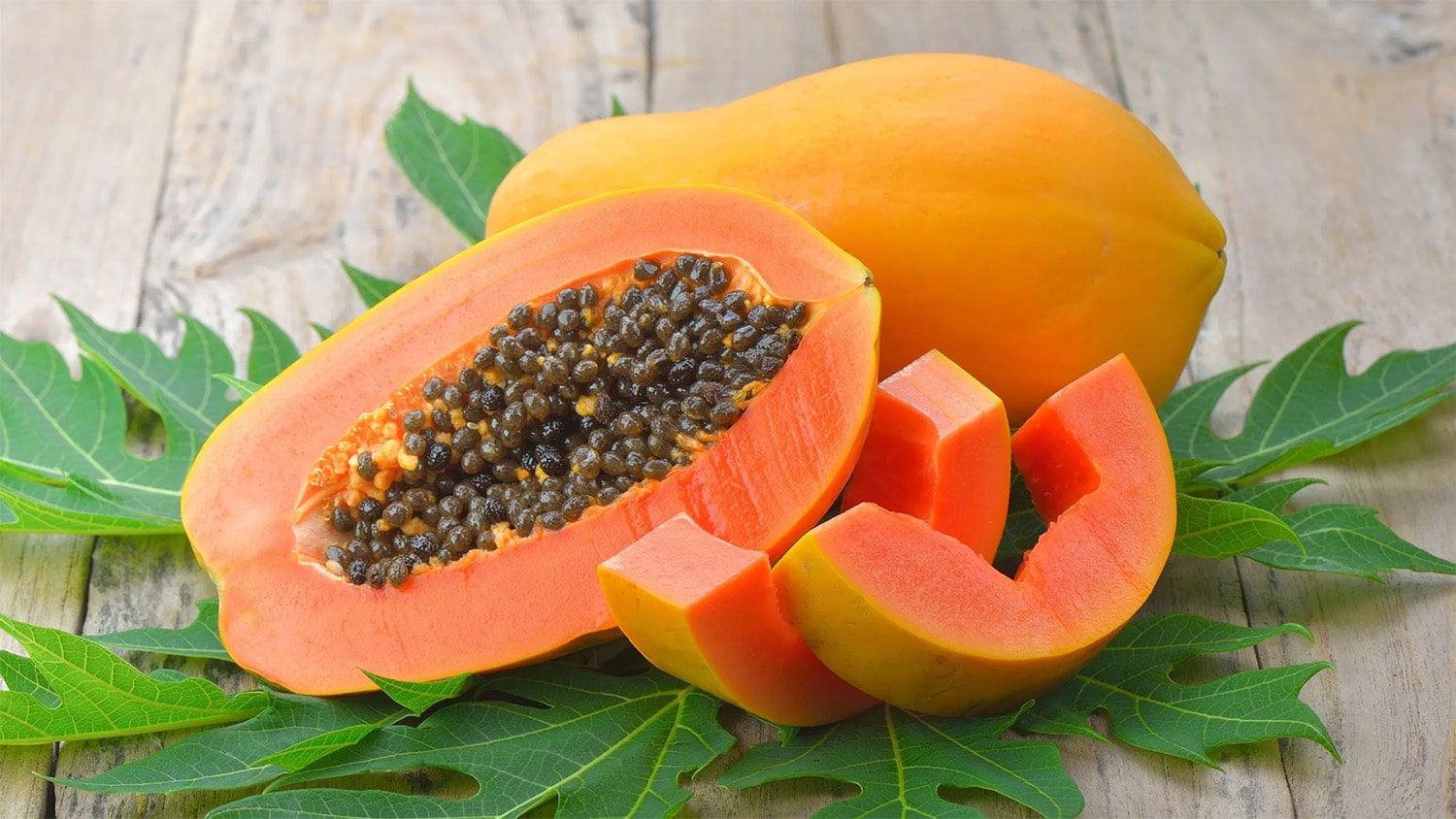
25 interesting facts about Papaya
- 👁️ 277
Papaya, often referred to as the “fruit of the angels” by Christopher Columbus, is a marvel of nature known for its velvety texture and sweet taste that seems to capture the essence of tropical summers. Native to the tropics of the Americas, this fruit has voyaged across the world to become a beloved ingredient in a multitude of dishes, from refreshing salads to exotic desserts. Its vibrant color, distinctive flavor, and myriad health benefits have made it a staple in the diets of many cultures. Rich in vitamins, minerals, and antioxidants, papaya is not only a delightful treat but also a powerful ally for health and wellness. Here are 25 interesting and informative facts about papaya that highlight its importance and versatility.
- Papaya trees are actually large herbs, not true trees, because they have a hollow trunk.
- Each papaya plant can be male, female, or hermaphrodite, with only the female and hermaphrodite plants bearing fruit.
- Papayas were domesticated more than 2,000 years ago in Mexico and Central America.
- The fruit contains an enzyme called papain, which aids in digestion and can break down tough protein fibers.
- Papaya is exceptionally rich in Vitamin C, with one medium fruit providing more than 200% of the daily recommended intake.
- It’s also a good source of Vitamin E and beta-carotene, two powerful antioxidants.
- The black seeds inside papaya are edible and have a spicy taste, often used as a substitute for black pepper.
- Papaya’s skin contains enzymes that can tenderize meat, making it a natural choice for marinades.
- Unripe green papaya is used in Southeast Asian cuisines, especially in salads like the Thai som tam.
- The fruit is believed to have anti-inflammatory properties due to its high antioxidant content.
- Papayas are one of the few fruits that continue to ripen after being harvested.
- They can aid in weight loss because they are low in calories and high in fiber.
- The leaf extract of papaya has been used in traditional medicine to treat a variety of ailments, including dengue fever.
- Papaya is often recommended for diabetics due to its low sugar content and high nutrient density.
- The carotenoids found in papaya may improve heart health by reducing LDL cholesterol levels.
- It contains an antioxidant called lycopene, which has been linked to a reduced risk of cancer.
- Growing a papaya tree from seed to fruit-bearing takes about 9 to 10 months.
- Papaya was genetically modified to resist the papaya ringspot virus, saving the industry in Hawaii in the 1990s.
- The enzyme papain is also used in the cosmetic industry for exfoliating products.
- Papaya is used in traditional medicine to treat wounds and burns because of its antibacterial properties.
- The fruit’s latex can be a natural remedy for removing warts.
- Eating papaya may improve skin elasticity and reduce the appearance of fine lines and wrinkles.
- In some cultures, papaya leaves are wrapped around meat to tenderize it overnight.
- The fruit’s high water content makes it hydrating and beneficial for kidney health.
- Papaya has a unique flavor that pairs well with both sweet and savory dishes, making it a versatile ingredient in cooking.
Papaya is more than just a delicious tropical fruit; it is a nutritional powerhouse that offers a wide array of health benefits. From supporting digestion with its enzyme papain to providing a hefty dose of antioxidants that fight inflammation and disease, papaya is a fruit that truly stands out in the world of nutrition. Its versatility in culinary uses, from raw salads to cooked dishes, makes it a favorite among chefs and home cooks alike. As research continues to uncover the many benefits of papaya, it’s clear that this fruit deserves a place in the diets of those looking to lead a healthy and flavorful life.
Papaya, often referred to as the “fruit of the angels” by Christopher Columbus, is a marvel of nature known for its velvety texture and sweet taste that seems to capture the essence of tropical summers. Native to the tropics of the Americas, this fruit has voyaged across the world to…